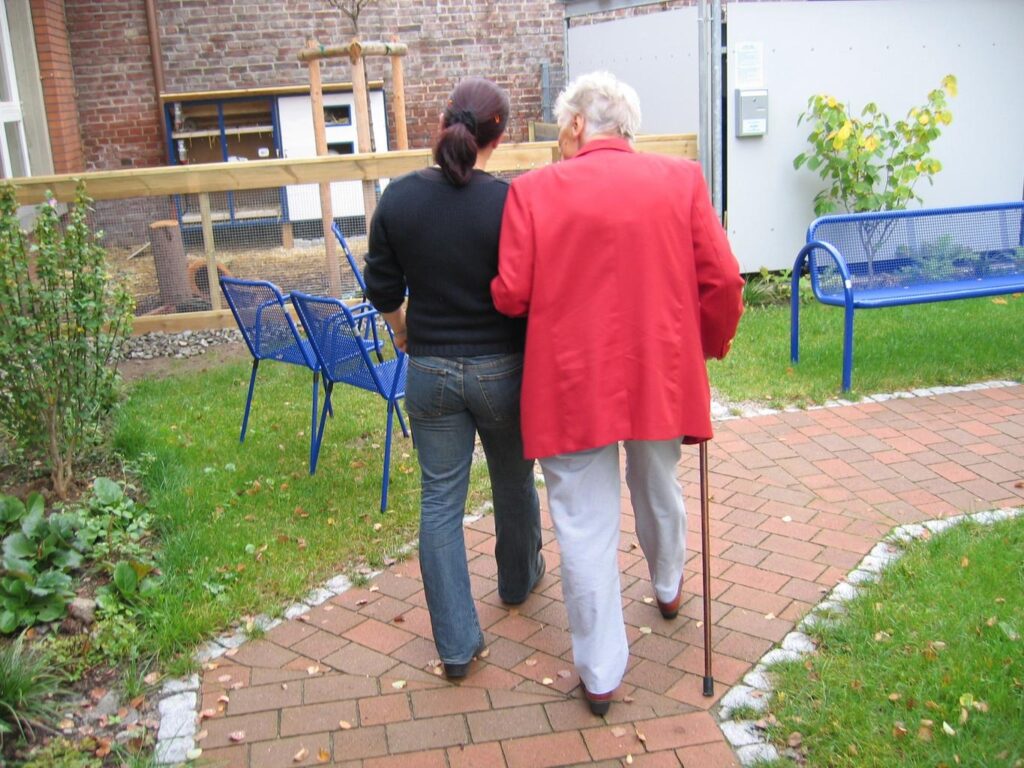Dementia is the broad term for conditions that cause substantial memory loss that is detrimental person’s daily life. Alzheimer’s disease is the most common form of dementia or subjective cognitive decline. It is a progressive brain condition that impacts a person’s ability to think, remember, and perform daily activities.
What is Alzheimer’s Disease?
Alzheimer’s is a progressive, neurodegenerative disease that occurs when nerve cells in the brain die causing problems with memory, thinking, and behavior. There are likely several factors that may contribute to your risk of getting it, but scientists do not yet fully understand what causes Alzheimer’s disease. Early treatment of Alzheimer’s may slow the progress of the disease and improve symptoms and quality of life. Doctors and specialists can help detect memory problems early and recommend treatment options.
Symptoms of Alzheimer’s Disease
It can be hard to recognize or admit to possible signs of dementia or Alzheimer’s disease. Often, it is friends or family members who notice signs first. If you or a family member is experiencing the following symptoms, you should schedule a visit with a doctor.

- Memory loss that impacts daily life
- Changes to personality, thinking, or behavior
- Slowed ability to learn things
- Trouble with simple tasks, such as getting dressed
- Speaking of conversation is slowed
- Delayed reactions
- Trouble with reading, writing, and numbers
- Mood swings or depression
- Confusion
- Problems recognizing close friends or family
What to do if you suspect Alzheimer’s Disease
If you or a loved one are experiencing dementia-like symptoms, you should schedule an appointment with your doctor as soon as possible. In the early stages of the disease, Alzheimer’s dementia can be challenging to diagnose because the signs can mimic other conditions.
Early and accurate diagnosis provides you and your family with more opportunities for treatment and care, greater access to clinical trials, and a better chance at preserving cognitive function. Your family doctor can help determine if the symptoms you are experiencing are related to dementia disease or more treatable conditions such as a vitamin deficiency or a medication side effect.
At River Bend Medical Associates, our compassionate caring staff are here to support you during your healthcare journey and provide you with the best chance at a quality life.
Talk to your Family Doctor
Diagnosing Alzheimer’s Disease and Dementia
There is no definitive lab test for Alzheimer’s disease or dementia. Your doctor will do a physical exam that includes a neurological exam that tests the patient’s reflexes, balance, muscle strength, and coordination. In addition to a physical exam and medical history review, your River Bend Medical Associates physician can perform diagnostic tests on attention, memory, problem-solving solving, and other cognitive abilities to see if there is cause for concern. Your doctor also may order tests to help detect an underlying cause or rule out other health issues such as blood tests, lumbar puncture, EEG, PET scan, MRI, or CT scan.
Treatments for Dementia
Currently, there are no known interventions that will cure Alzheimer’s so the goal of treatment is to maintain or improve cognitive and behavioral symptoms for as long as possible.
Treatment for dementia depends on the underlying cause and progression of the disease. There are two types of prescription drugs approved by the US FDA that temporarily ease some symptoms or slow the progression of the disease. Most of these drugs work best for people in the early or middle stages of dementia, but they don’t work for everyone, and they may become less effective over time.
Managing Alzheimer’s Disease

Family, friends, and health professionals can help the person with Alzheimer’s to feel safe and to manage their disease by monitoring medications and proper nutrition, encouraging exercise, and helping to set-up a safe and stable home environment.
Medications
Currently, two types of medications have been approved by the FDA to treat the cognitive symptoms of Alzheimer’s disease, memantine and cholinesterase inhibitors. These prescription drugs may help with memory loss, confusion, and problems with thinking. Medications such as: anticonvulsants, antidepressants, anti-anxiety drugs, and sleeping pills may be used to treat other issues associated with Alzheimer’s disease like behavioral issues, depression, and trouble with anxiety or sleeping.
Nutrition and Exercise
Proper nutrition and physical activity are integral parts of a comprehensive Alzheimer’s treatment plan.
Eating a healthy diet is important in maintaining health as well as avoiding nutrition-related conditions such as dehydration, constipation, and malnutrition. Exercise can help relieve some of the behavioral or movement symptoms associated with dementia. Exercise promotes heart health, can help reduce anxiety, improve mood, and help promote sleep.
Structured Environment
Creating a safe and stable environment is an essential part of any Alzheimer’s dementia treatment plan.
Steps to making an Alzheimer’s patient’s environment safe, stable, and supportive patient can include:
- Making a structured routine schedule for each day.
- Organizing the house so that it is clutter-free and easy to manage.
- Remove loose rugs or other tripping hazards.
- Keeping pictures and memorabilia that bring joy around the house.
- Make sure the patient always carries a phone with easy-to-find key contacts.
- Check that smoke detectors have fresh batteries and are fully functional.
Alzheimer’s disease and dementia are chronic, progressive conditions that cause cognitive impairment severe enough to impact a person’s ability to carry out daily tasks. Alzheimer’s disease is the most common form of dementia and is the sixth leading cause of death in the U.S.
Doctors and scientists are working tirelessly to find better ways to treat Alzheimer’s dementia, delay its onset, and prevent it completely. Although it can’t yet be halted or cured, early diagnosis and treatment offer the best chance to live well with the disease and prepare for the future.
River Bend Medical Associates is ready to provide answers and guidance through Alzheimer’s disease testing and diagnosis.


